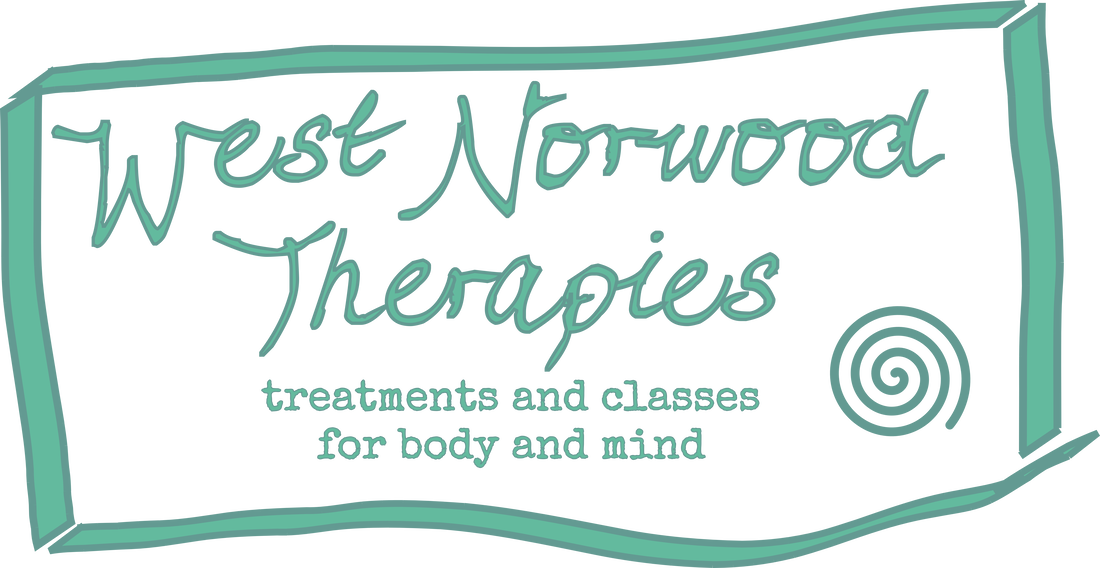|
Acupuncturist and massage therapist Mihaly Rosta shares some interesting thoughts around the 'how' of our eating habits being as, if not more, important than the 'what'. ow important is it to have the right food on your plate?
I usually see a divide amongst my friends and clients when it comes to diet and food. Some people just eat for the joy of it, not caring much about if they eat a lot of carbs or meat. Whilst other people can be “almost” obsessive about what they eat. May that be superfoods, very specific vegetables and meat, etc. So what is the correct attitude to diet? Well, I of course could not give a simple answer to such an important question. Especially as I am not a dietician. However when it comes to Chinese medicine, we always strife for balance. Walking the middle path. Sure, it is important to have a varied diet -according to both food energetics, colours, food groups- but I find it much more important to look at how people eat and digest. In my experience, our mental health and eating habits combined has a much stronger effect on our digestion and general health than the types of food we eat. Do not get me wrong, I am not saying that we should all eat white bread, milk and sugar 3 times a day. I am referring to the fact that if you have a varied intake of vegetables, fruits and meats/nuts, you should not worry too much about whether it is organic or not, or how many superfoods and brown rice you include in your diet. What is important then? 1. Structure and rythmn It is generally important to follow a rythmn in our daily life. Structuring our days around our meals and sleep can provide with a healthy l. So we priorities ourselves, our nourishment amongst other responsibilities. 2. Rest Taking breaks between meals (3-4 hours) gives our digestive system a rest, as opposed to continuous snacking which will overwork our Spleen and Stomach. 3. Focus /mindfulness Eating should be about the food and our nourishment. The taste, texture, colour, smell of our food should be in the focus of our mind when we eat. Not TV, Netflix, news, daily tasks or plans for the week. Let’s do ourselves a favour and eat mindfully. Just when we decide on the food we eat, we should apply the same mindfulness during our time of nourishment. 4. 2/3 There is a Chinese saying that you should only fill your belly 2/3 of the way, so there is space for Qi to do the digestion. Overeating is overtaxing on our digestive system. Finding the correct amount of food that does not leave us hungry, but also doesn’t makes us sleepy is essential. 5. Fluids It is important to drink plenty of fluids during the day, however it is best to avoid drinking with our meal. If you have a weak digestion, you may find it beneficial to drink digestives 20 minutes prior to your meals. Or if your meal seems to settle in heavy (lots of fats/oils) you may find drinking a (half) shot of clear spirit (I recommend Bison vodka for flavour 😛) also very beneficial. On a different note. There seem to be a misconception about the amount of fluid we all need to drink. Generally speaking of we want to hydrate ourselves we have to include fluid-ful vegetables in our diet. Soups, curries, tomatoes, courgettes, etc. 6. 100 steps Digestion does not stop when we finish eating. On the contrary. It’s fairly important that we rest after a meal for about half an hour. The Chinese has been recommending 100 slow steps after eating. As (slow) walking aids the intestinal movements (peristalsis) and thus digestion. 7. Avoid going to bed on a full stomach Simple as that, we should not be wasting our energy on digestion whilst we are sleeping. More over, it is most beneficial to have a bigger gap (intermittent fasting) in our day when our digestive system is to rest. 8. Anxiety = IBS Last but not least, looking after our mental health is perhaps the most important of tasks that we need in order to have a healthy digestion. I’ll talk about this more in detail another time. So these are only a few points that are in my opinion are just as (if not more) important than the quality of the food we eat. Thus if you are suffering with any digestive issues, you may find it beneficial to go through this list before you start cutting out your favourite foods. Of course Acupuncture is an amazing tool to help/reset the digestive system. So if you feel you need some additional support in that regard. Do not hesitate to get in touch. Happy Eating!
0 Comments
This month is Skin Cancer Awareness Month and sports massage therapist Lauren O'Sullivan shares some helpful guidelines in what to look for and how to protect yourself as well as her personal experience of a skin cancer scare. May is Skin Cancer Awareness Month! Did you know that skin cancer is one of the most preventable cancers if signs are caught early? This blog post is here to help you know what to look out for. As a soft tissue therapist I see a lot of skin, and so I am fairly attuned to noticing subtle changes, but how well do you know your own skin? This month find some time to give yourself a skin check from head to toe - you will need to use a mirror. Don’t forget to look at your face and scalp. You can use a hairdryer to part your hair when looking at your scalp, or get someone to help you. You are looking for anything new, changing or unusual. So what is unusual?
Document your findings somewhere so that you can refer back to them next time you do a check. This is useful when trying to work out if anything has CHANGED. Skincancer.org recommends that you do a skin check once a month, but every 3 months is probably a little more realistic and works just fine. The other important prevention method is protecting your skin from sun damage. The more you burn your skin from sun exposure, the greater your risk of developing melanoma. Five or more sunburns more than doubles your risk of developing melanoma. Even if you are tan or have dark skin, your skin can still be damaged by the sun especially when there is a high UV index - when and where the sun is strongest. Think about some simple ways to stay safe in the sun:

If you do notice something slightly abnormal in your skin make an appointment with your Doctor. If you have a partner you can ask them if they notice a difference from how it might have looked before (if you don’t have a reliable skin check history) or if you regularly see a massage therapist and feel comfortable asking them, see if they have noticed a change. You may be able to provide a bit more information to your Doctor this way, but the most important thing is to get it checked. Better safe than sorry. Early detection starts with you.
WNT founder Jennie Duck considers how differently we interact with anniversaries of births and deaths and in the week of 'dying matters' shares what currently matters to her about death and dying. My son turns six in June – something generally agreed to be an exciting event, greeted with enthusiasm and joy (and, as parents, with utter awe that this person exists with a tinge of sadness that the stages he’s gone through are in the past now). It is a time for celebration; we tell people our birthdays and we enjoy marking them with cake and parties. Granted they might become a little less joyful if we are feeling resistance to aging, but they tend still to be a time we are cherished and celebrated.
In July it will be 5 years since my dad died and in February it was 4 years since my mum died. These dates loom very differently on my internal visual map of the 2022. While the anniversary of my son’s birth is a gentle peak, something with a very outward, yang energy, the anniversaries of my parents’ deaths are big craters with much more of an inward, yin energy. I describe these as ‘craters’ which sounds very negative, but I don’t feel like that. The crater-ish-ness is symbolic of the desire to retreat and go down into the grief, it is also a reminder of what the period around the deaths felt like. These were dark holes of time that have left their mark forever. But they are not something I ever want to avoid. They are there and my awareness of them is part of the landscape of my life now. These anniversaries change year to year. The first couple of years they hit extremely hard and involved a lot of reliving. I relived the week following my dad’s sudden death when we were absorbing the shock, whereas my mums rapid decline the week preceding her death was something I went through almost hour by hour the first two anniversaries. Now they are more mellow and I can’t always predict how it will pass. I do know, though, that it is vital to give them space, to allow for time and feeling the days leading up to it and sometimes beyond. I find it extraordinary how we interact with death in our society – or how we try and avoid interacting with death. There seems to be a sense that if we draw attention to anniversaries, it is reminding people of loss, of the pain of grief. But this loss and pain is always there, it doesn’t go away because we don’t talk about it or acknowledge it. For some people an anniversary might just feel like something that they need to get past, but for me it feels as vital as Christmas. It shapes the year, it helps me remember in a mind, body and spirit way that life is precious and fragile and cannot be taken for granted. This week is ‘dying matters’ week which draws important attention to the circumstances and environment of how we die and encourages conversations around death. It is easy to avoid putting attention towards our own death or that of anyone we love, be that practical or emotional attention. At the moment what matters to me about dying is that we remember it. That we remember it in our very act of living, that THIS is life, this is our existence, and it doesn’t go on forever. That we remember it in our relationships, that these people we rely on and share with and love so much will one day die. That thought that can be so crippling can also give us fire for living, an opportunity to savour who and what we have while we have it. And mostly, still in my relatively early years of grief experience, it matters that we remember the deaths of those that we have lost. That we remember their impact on our lives, how they shaped us and affected us. That we remember who they were in their lives, what they did with their time on earth and who they touched while they were around. And, finally, that we remember what we went through in losing them, how that moment rerouted our life path and changed us forever. If we can let ourselves remember this and really feel it then, perhaps, we can let ourselves really grieve, let go and really live. |
AuthorBlogs from the WNT team. For our blogs from before June 2020 please see individual profile pages - it's a good way to get to know practitioners too. Archives
June 2024
Categories
All
|
|
Visit us - by appointment only please - in the office block in the Access Self Storage premises at 443 Norwood Road, London, SE27 9DQ
[email protected] Phone - please contact practitioners directly, or if not in a rush you can leave a message for us to call you back at 07931876931. |
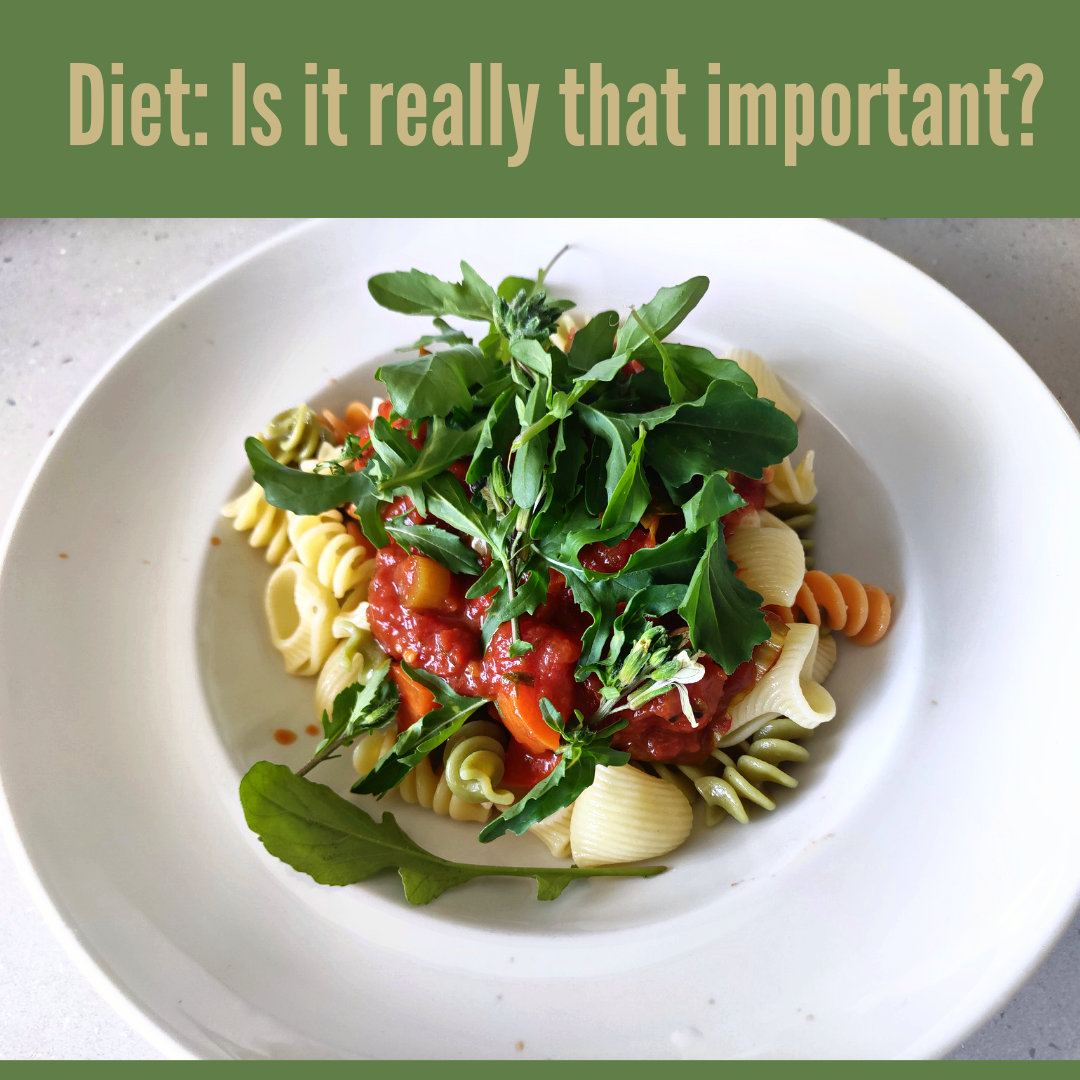
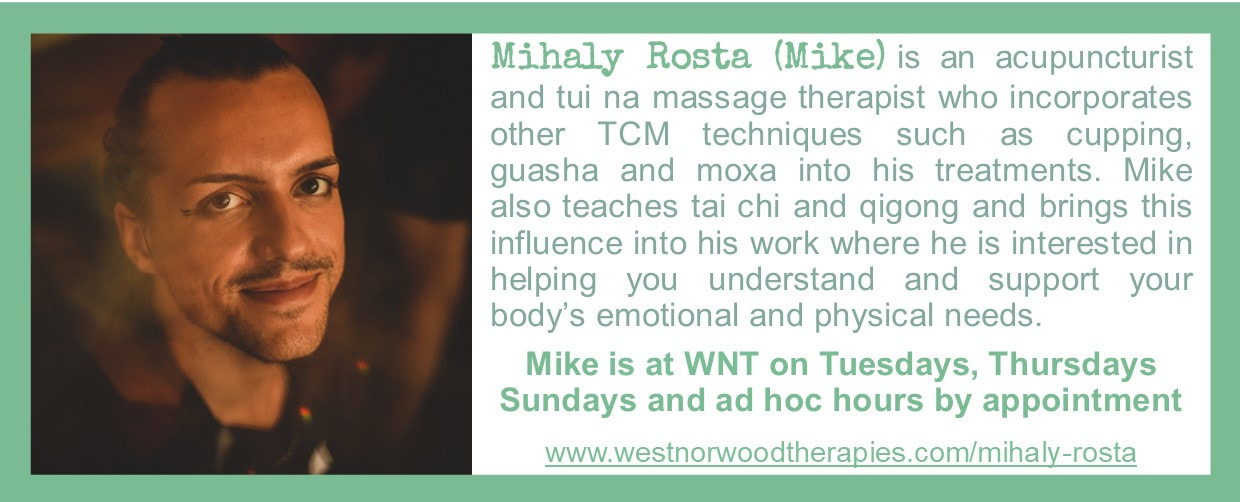

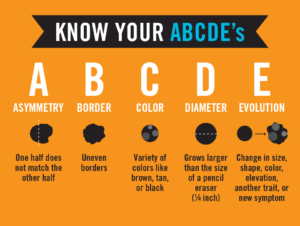
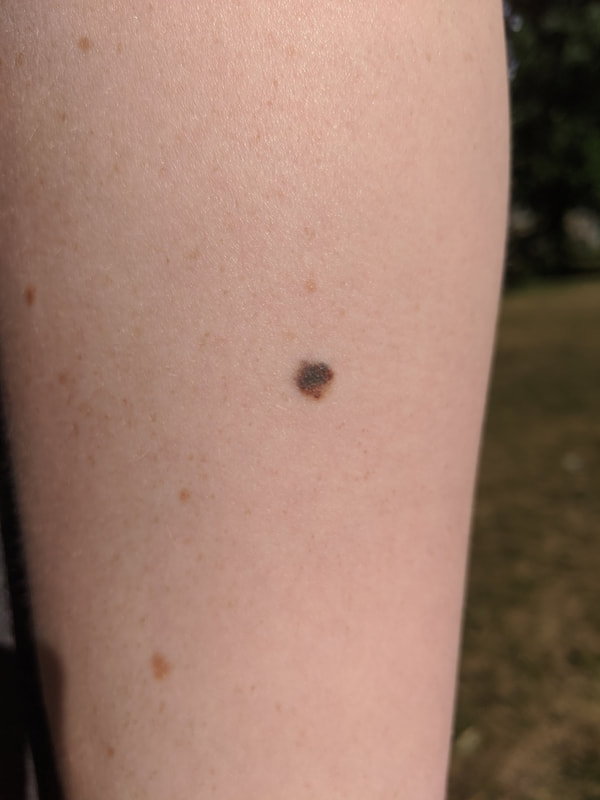
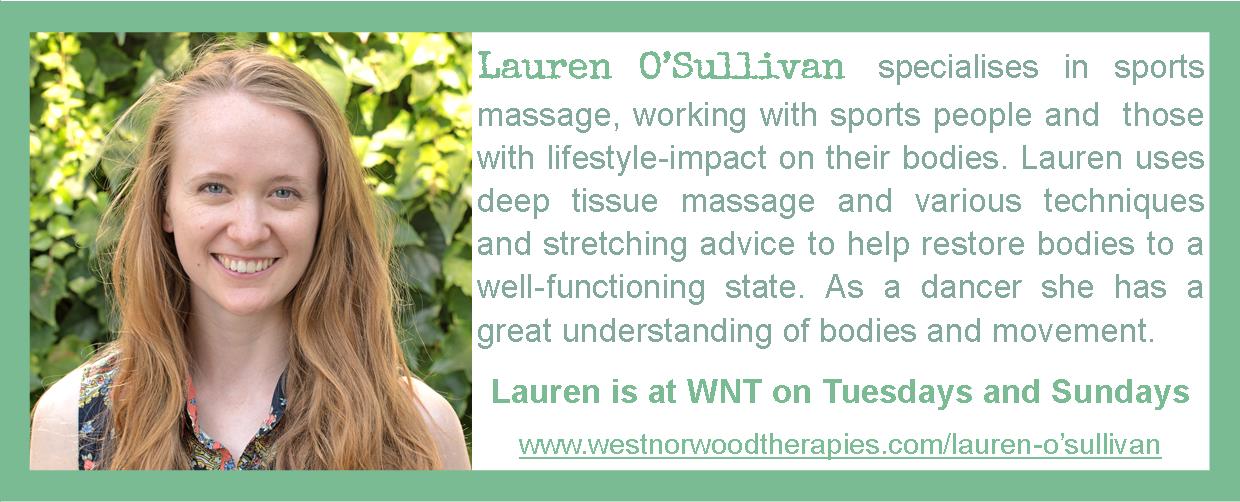
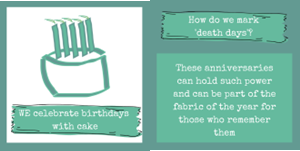
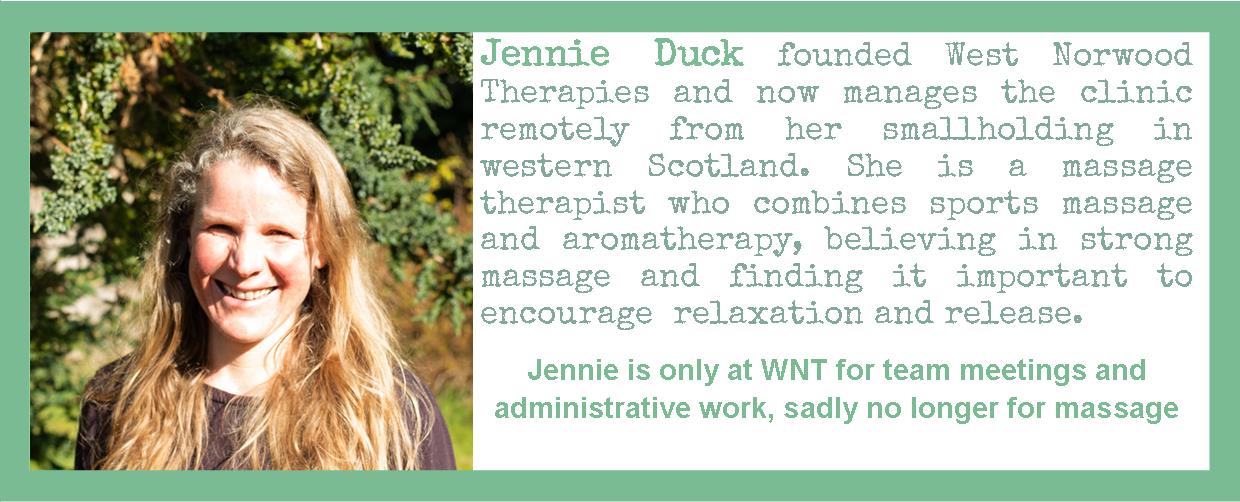
 RSS Feed
RSS Feed
